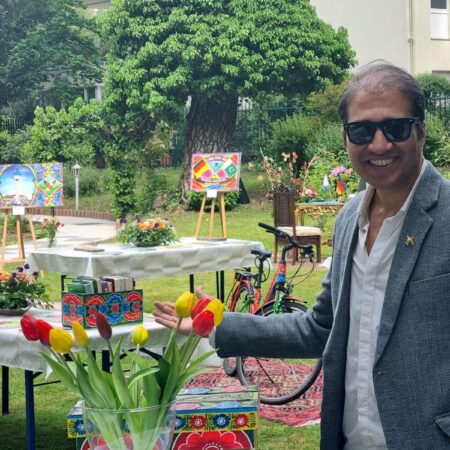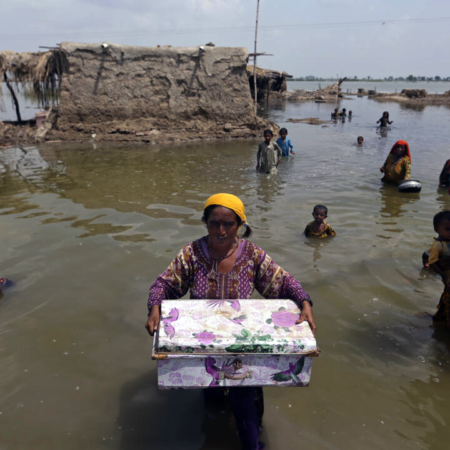
According to interim leader Muhammad Yunus, Bangladesh will request the extradition of Sheikh Hasina, the former prime minister who was overthrown in a revolution in August and fled to India.
Hasina, 77, was last seen landing in neighboring India after escaping by chopper as protestors surrounded her palace. Dhaka has already filed an arrest warrant for her.
Hasina is still living in exile in India despite being called to appear in court in Dhaka on Monday to answer to accusations of “massacres, killings, and crimes against humanity.”
Yunus stated that his government was committed to bringing justice to those responsible for suppressing the demonstrations in order to remove Hasina.
Similar charges are anticipated to be brought against a number of her former cabinet ministers who were arrested and incarcerated.
Yunus declared on Sunday, “We have already taken steps to try those responsible for the mass killings during the July-August uprising, murders, and enforced disappearances.”
The 84-year-old Nobel Peace Prize winner was named “chief advisor” to the government on August 9, just days after Hasina’s 15-year dictatorship came to an end.
Speaking to the country to commemorate 100 days in power following a student-led revolution, Yunus claimed to have had a conversation with Karim Khan, the International Criminal Court’s head prosecutor.
Referring to Hasina, Yunus declared, “We will seek the extradition of the ousted autocrat from India.”
Bangladesh announced earlier this month that it would ask Interpol to issue a “red notice” alert for Hasina’s regime’s fugitive leaders.
The global police body warns law enforcement authorities about fugitives by issuing red alerts.
Despite India’s membership in Interpol, New Delhi is not required to turn over Hasina despite the red alert.
The organization, which coordinates police cooperation across 196 member nations, contends that member nations are free to “apply their own laws in deciding whether to arrest a person.”
“Please be patient.”
Pioneer of microfinance Yunus is in charge of a transitional government that will attempt to address the “very difficult” task of reestablishing democratic institutions in the 170 million-person South Asian country.
Additionally, he pleaded for the nation’s “patience” in getting ready for the much anticipated election, promising that an electoral commission will be established “within a few days.”
However, Yunus stated that he was unable to provide an election timeline because it was contingent upon a number of reforms.
In the program, he declared, “Once the necessary and essential reforms are completed, we will hold the much-anticipated election.”
“Until then, I ask for your patience. Our goal is to create an electoral system that will last for many years. We need some time for this.
The issue facing Yunus has been described as “monumental” by Crisis Group analyst Thomas Kean, who also cautioned that “cracks are emerging in the fragile alliance” that propelled him to power.
“Yunus and his associates currently enjoy broad support, but public expectations are mixed,” the think group stated in a report released on Thursday.
“An early election with little progress is likely to result if the interim administration fails to implement reforms; in the worst case, the military may take over.”












No Comment! Be the first one.